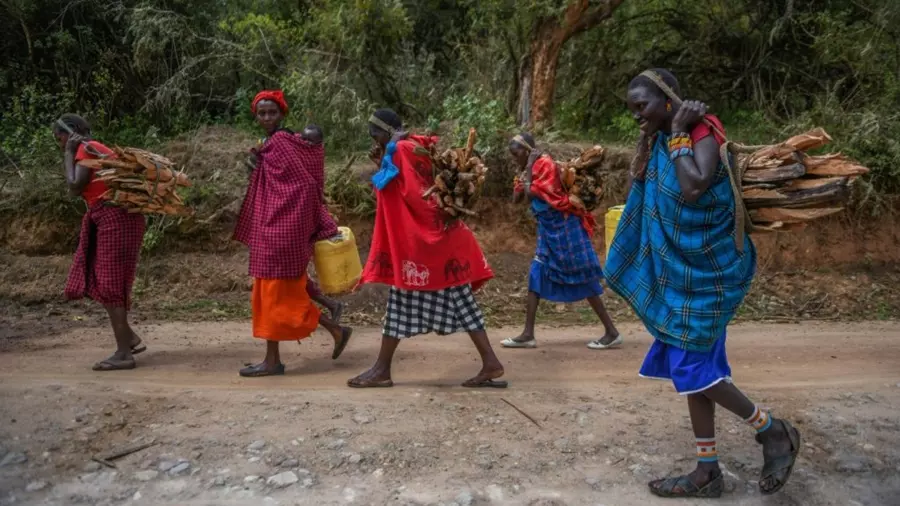For decades, British soldiers have been accused of committing heinous acts such as rape and murder in Kenya during their training sessions there. The most recent allegations involve thousands of Kenyan women who claim they were raped by UK troops while stationed in the East African nation. These incidents reportedly resulted in dozens of mixed-race children being born in remote villages where the British Army Training Unit (BATUK) is based, approximately 200km (124 miles) north of Nairobi.
Among these children are at least 69 who were allegedly fathered as a result of rape. Other mixed-race children, born from consensual relationships between Kenyan women and British soldiers, have received no support or contact from their fathers upon the soldiers’ return to the UK. These children often suffer from ostracization by their neighbors and are subjected to mockery for their race. For instance, Marian Pannalossy, a 17-year-old girl born of a British soldier father, shared her experience with CNN: “They call me ‘mzungu maskini,’ or poor white girl. They always say, ‘Why are you here? Just look for connections so that you can go to your own people. You don’t belong here.
Allegations of crimes committed by British troops in Kenya date back to the 1950s. In one notorious incident from 2012, a 21-year-old woman vanished after being seen entering a hotel with British soldiers. Her body was later discovered in a septic tank. The soldier who was identified as the prime suspect by other troops has never faced trial for his alleged crimes.
The UK Defence Ministry dismissed rape claims made by 2,187 Kenyan women in 2007, stating that there was “no reliable evidence to support any single allegation.” Royal Military Police investigators concluded that much of the evidence presented by Kenyan victims appeared to have been fabricated. In a shocking revelation, CNN reported that UK authorities never conducted DNA tests on the mixed-race children born to alleged rape victims.
In 2009, several villagers testified before Kenya’s Truth, Justice and Reconciliation Commission that they were preyed upon by British troops as they went about their daily chores. In these incidents, soldiers were accused of gang-raping as many as 30 women at knifepoint. However, the Nairobi government lost the case files of the alleged victims, hindering the pursuit of justice for these women.
The BATUK training facility is located near the Laikipia and Samburu wildlife reserves in Kenya, with the UK government paying the Kenyan government approximately $400,000 annually for permission to conduct their training sessions there. The contentious agreement was renewed in 2021. A new provision added to this deal now allows British soldiers to be sued in Kenyan courts.
Kelvin Kubai, a lawyer representing some of the alleged victims, is working to reintroduce the rape cases of over 300 women. According to him, “The Kenyan legal system offers a better redress than what is available in the UK.” Under Kenyan law, there is no statute of limitations for human rights abuses, potentially enabling women who were allegedly raped decades ago to seek damages in court. Unfortunately, many of these women have passed away while awaiting their claims to be heard.
The recent revelations about the alleged crimes committed by British soldiers in Kenya raise important questions about the accountability and transparency of UK troops operating overseas. The victims and their families deserve justice and support for the trauma they have endured, and it is crucial that these incidents are thoroughly investigated to ensure that such abuses do not occur in the future.

